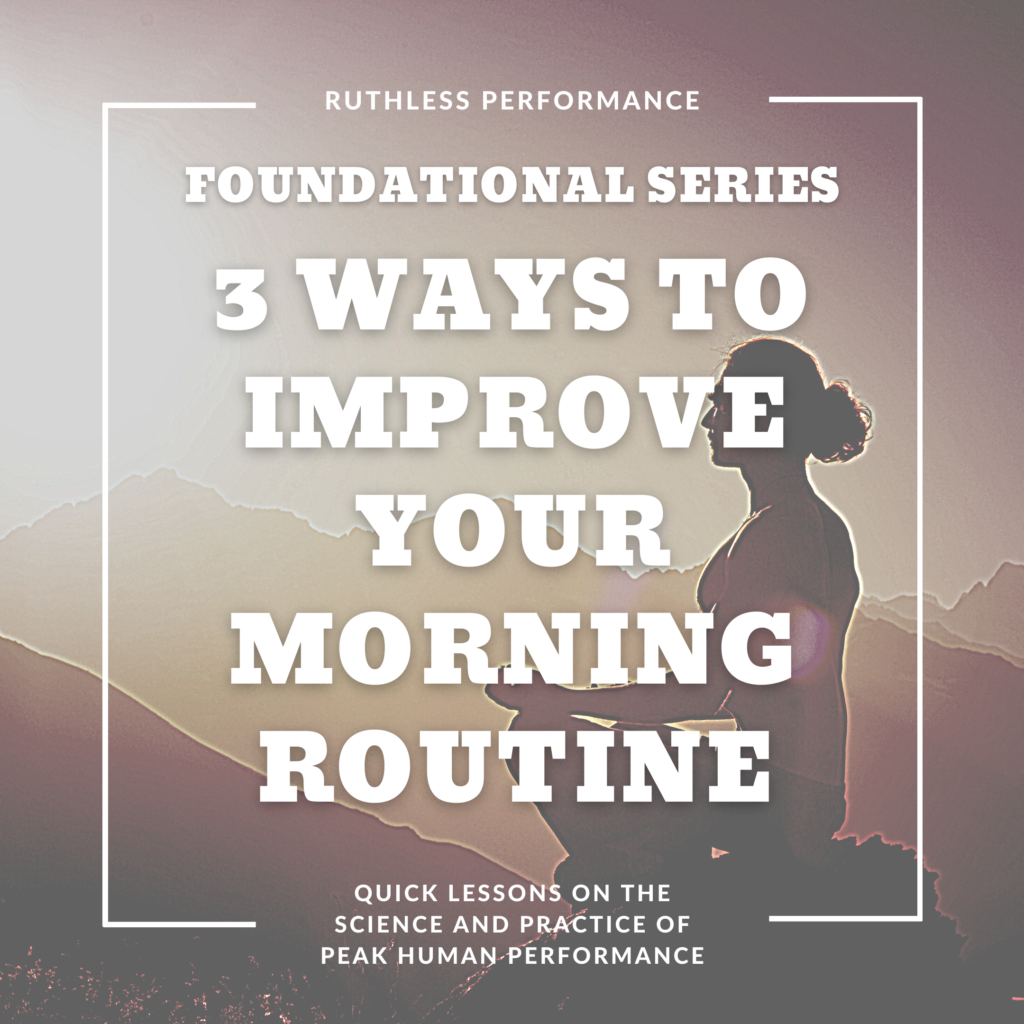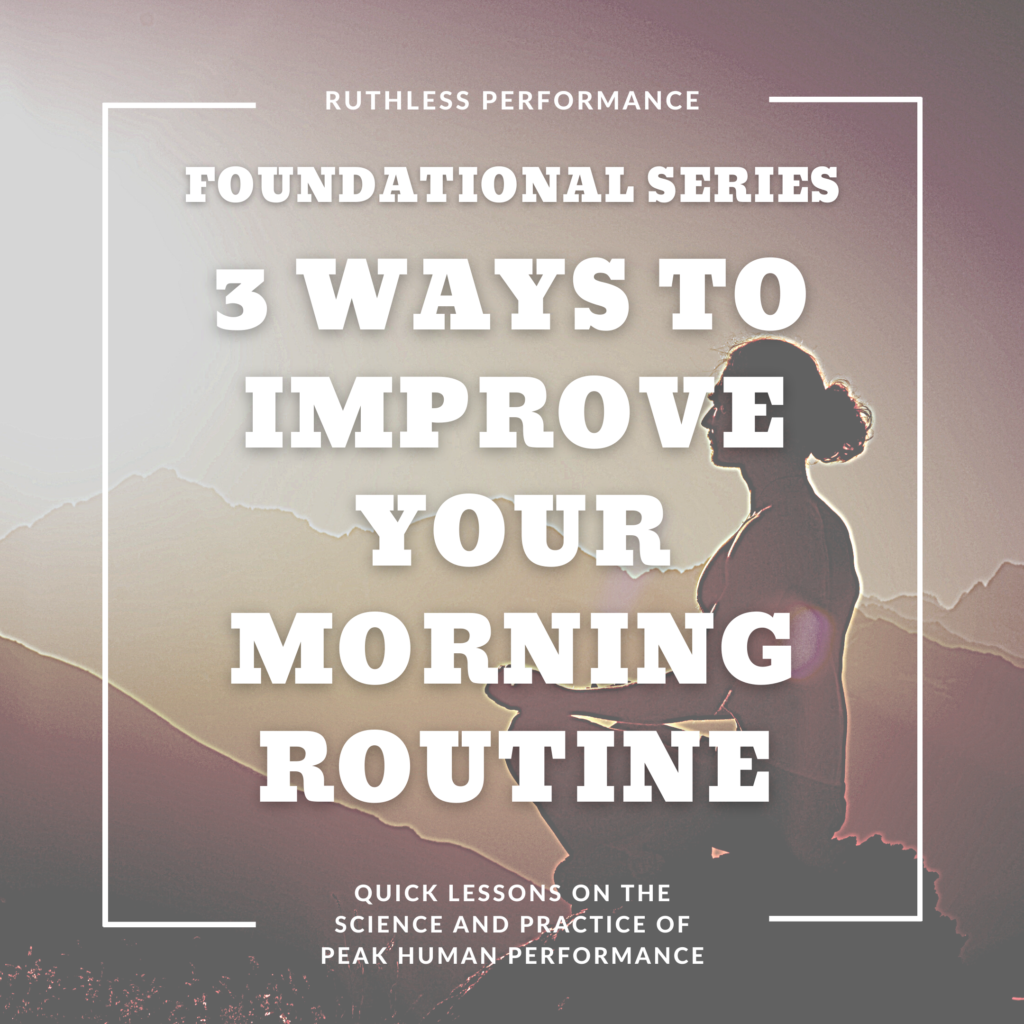Over and over we’ve heard about the value of optimizing your morning routine. In many respects this is a crucial element to achieving peak performance; what I’m more interested in, really, is the upstream and downstream effects of a honed-in morning routine.
When your morning routine is on-point, it usually means that your sleep the night before was high-quality, that your nutrition was dialed-in, and your workouts were effective and sufficiently taxing.
So consider your morning routine a jumping-off-point for improving your day-to-day habits moreso than something valuable unto itself. Below are three habits, tricks, and tips for better mornings and therefore more productive days.
3. Early Morning Vitamin D Supplementation
Vitamin D supplementation is a common theme across my health and fitness recommendations, usually regardless of the goal. One of the main reasons for this is the widespread implications of Vitamin D on the body (my current interest here is the relationship between Vitamin D and the serotonin system) compared against the relatively high frequency of Vitamin D deficiency in the general population, which has been observed in around 40% of the US population (1).
As far as human performance is concerned, Vitamin D regulates testosterone, calcium uptake, focus, and executive skills more broadly. In the context of sleep, wake, and restfulness, Vitamin D is associated with the circadian rhythm. In the evolutionary context, Vitamin D was synthesized through sun exposure, meaning that our relationship with Vitamin D co-evolved with our relationship with the sun.
Although sun exposure for Vitamin D is a great idea in theory, in practice we’re dealing with a different story. Most northern latitudes don’t see enough sunlight in the winter for sufficient Vitamin D production to be possible.
Consider taking a 2,000 IU Vitamin D3 supplement and then go up or down from there. I find I function best on 2,000 – 4,000 IUs of Vitamin D3, depending on the day. Vitamin D3 makes up 1/3 of my pre-workout routine–but more on pre-workouts another day.
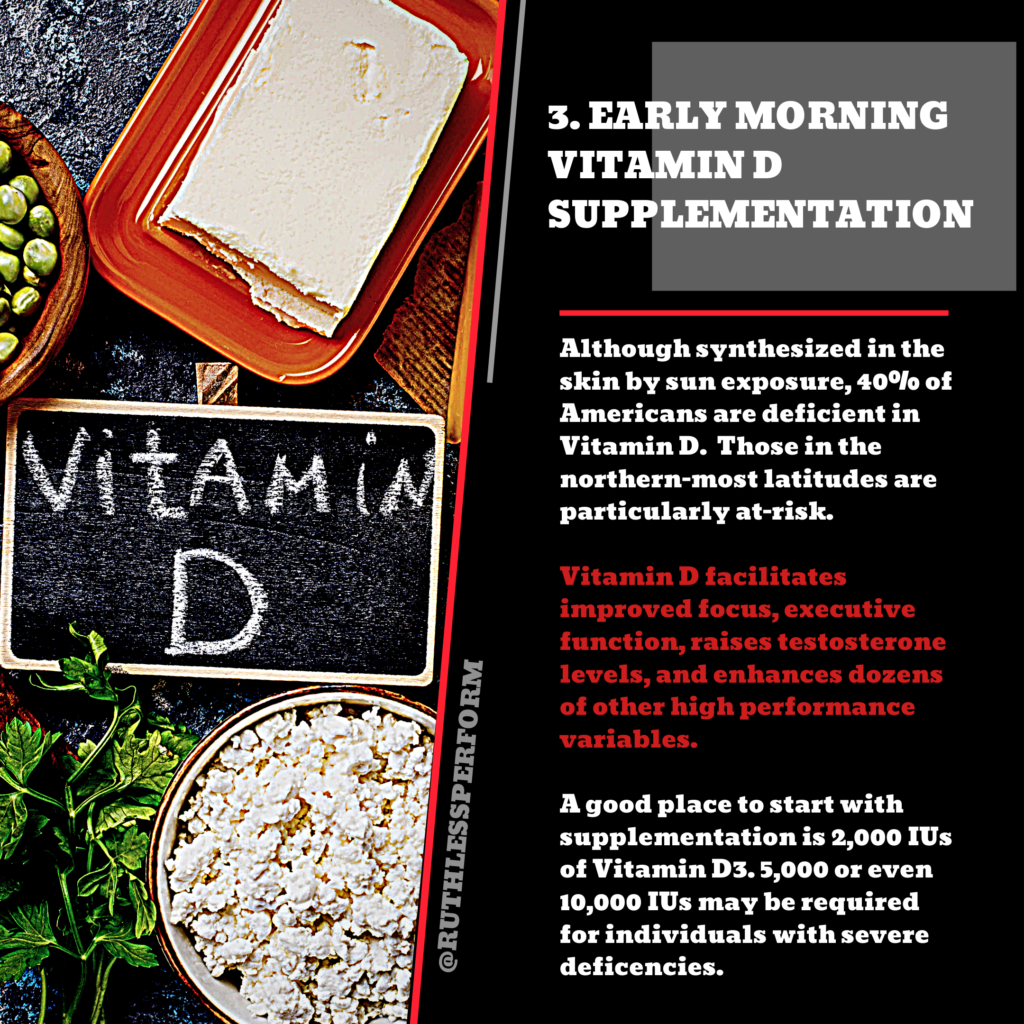
2. Daily Mindfulness Meditation
From a personal perspective, I’ve had a complete perspective shift on the value of meditation. Whereas I once thought of meditation as some esoteric hullabaloo, I know recognize the power of a mindfulness practice as it relates to decision making, awareness, and proactivity.
Though this theory has yet to be substantiated, my thought is that mindfulness mediation works by stimulating the prefrontal cortex, the area of the brain responsible for higher level decision making and rational thought.
A 10-minute meditation first thing in the morning sets you up proactively for the rest of the day. Skip the phone or the email and first check your AM meditation off of the list. If at first you don’t understand the practice, it will ultimately come to you with time.
Apps can be very helpful in terms of holding you to account and giving you some guidance. I’ve heard good things about Headspace and Calm, but I personally use Sam Harris’s Waking Up app regularly. The key is to find an app that fits your needs until you have an established practice.
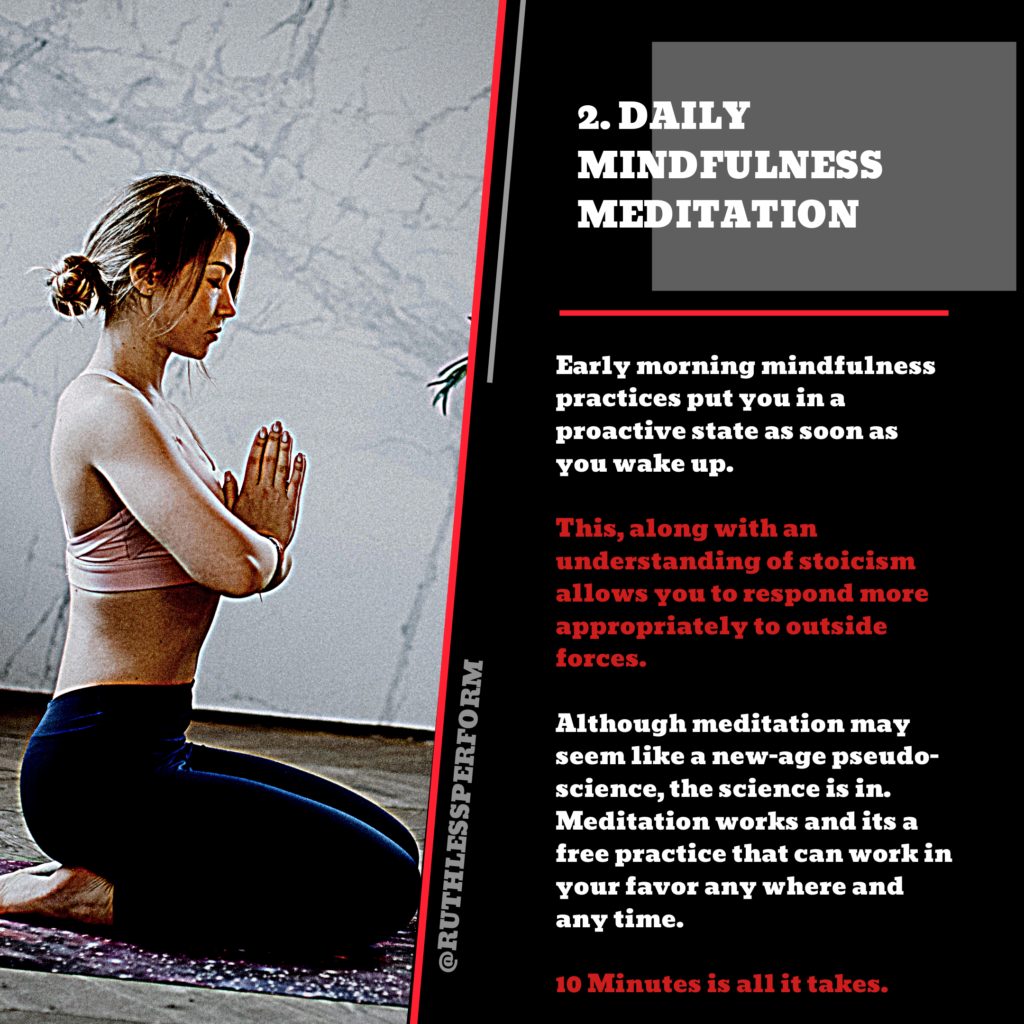
1. Limit Alcohol Consumption
To be frank, the idea that 1-2 drinks per day can be healthy is bullshit. Alcohol, in moderation, can be a part of a healthy lifestyle, sure. But the key is to minimize alcohol whenever and wherever possible.
I drink regularly in social environments, but I recognize its negative effects on my performance and focus. The cost can be balanced out by the value of social health, but overall alcohol is detrimental to sleep and therefore detrimental to peak AM performance.
For some, a range of 1-3 drinks may have negligible effects on health, sleep, or performance, but these are a slim minority. If you are going to drink, I’ve began to recommend a 3-drink-maximum. Going into a situation with this rule in place helps prevent bad decisions and worse mornings.
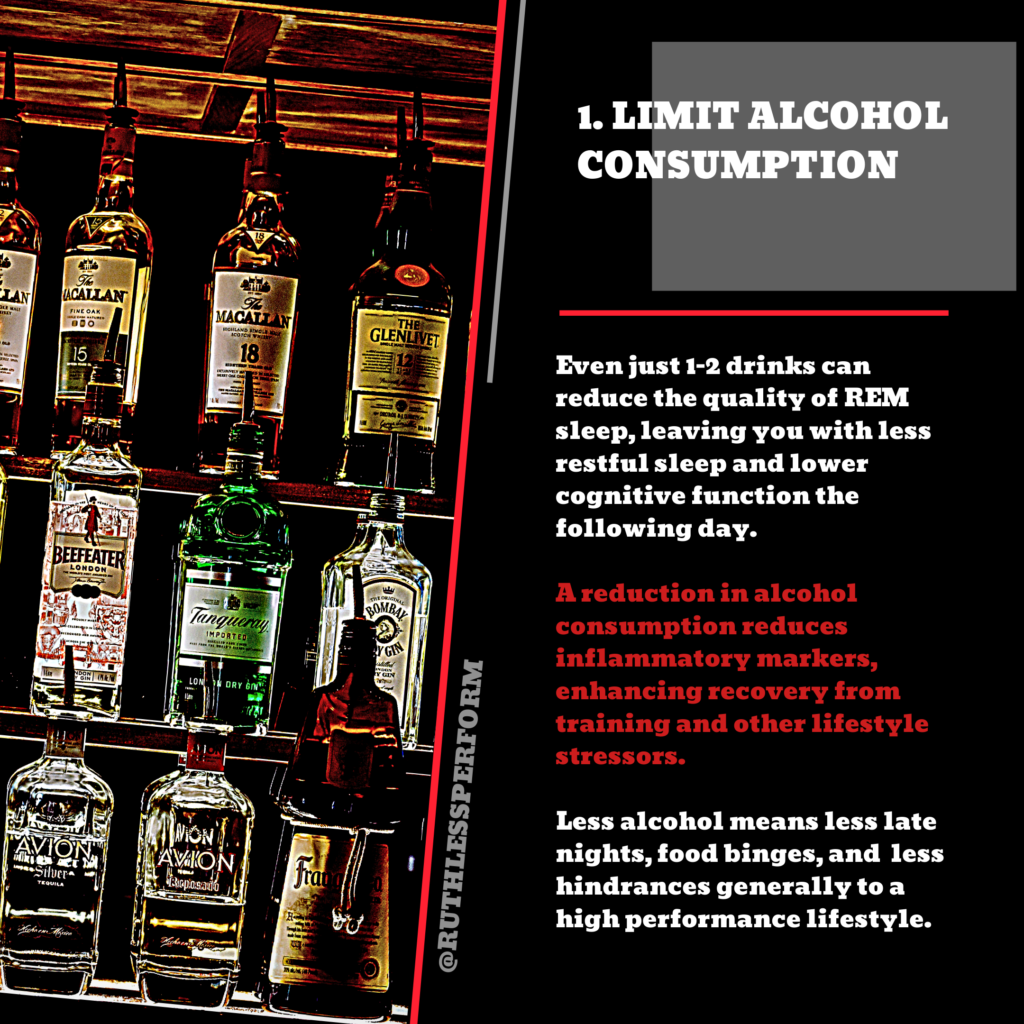
Works Cited
(1) Prevalence of Vitamin D Deficiency and Associated Risk Factors in the US Population (2011-2012)
